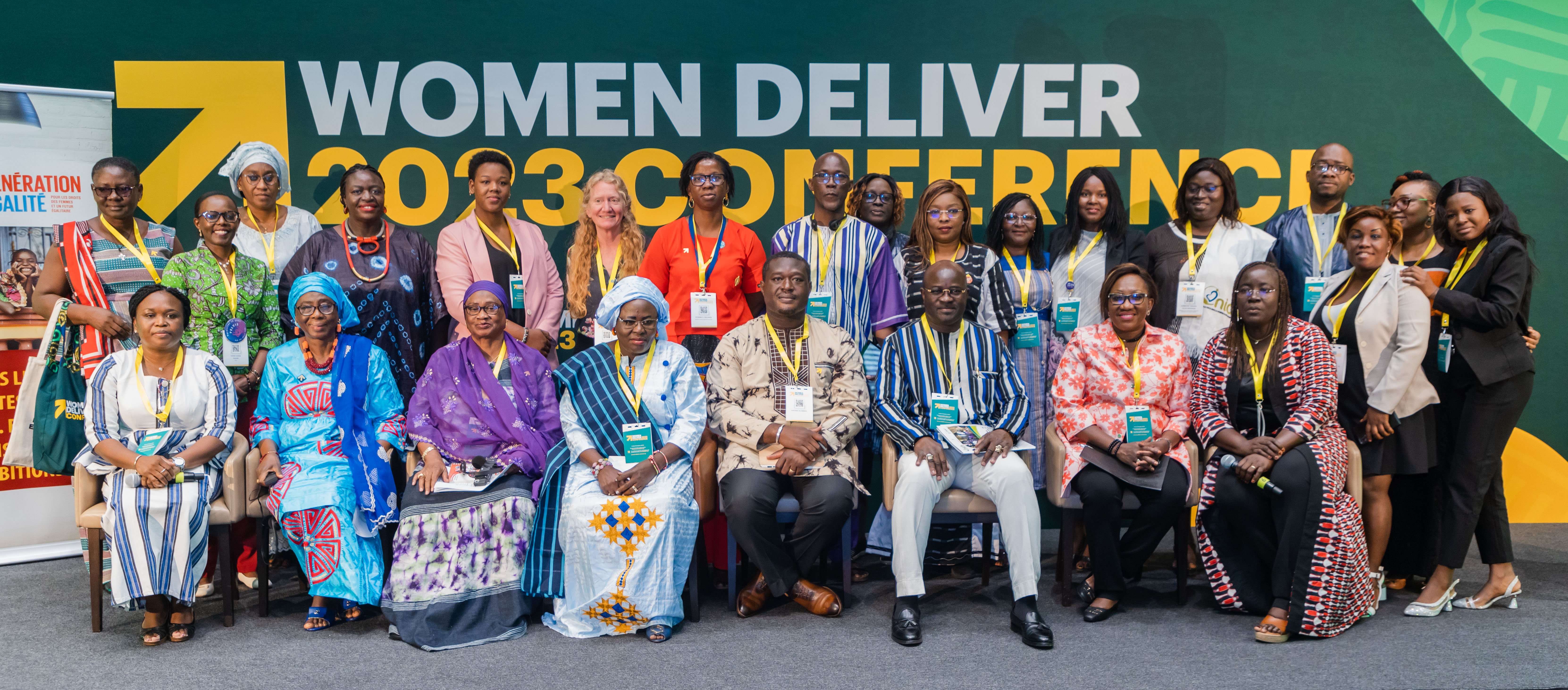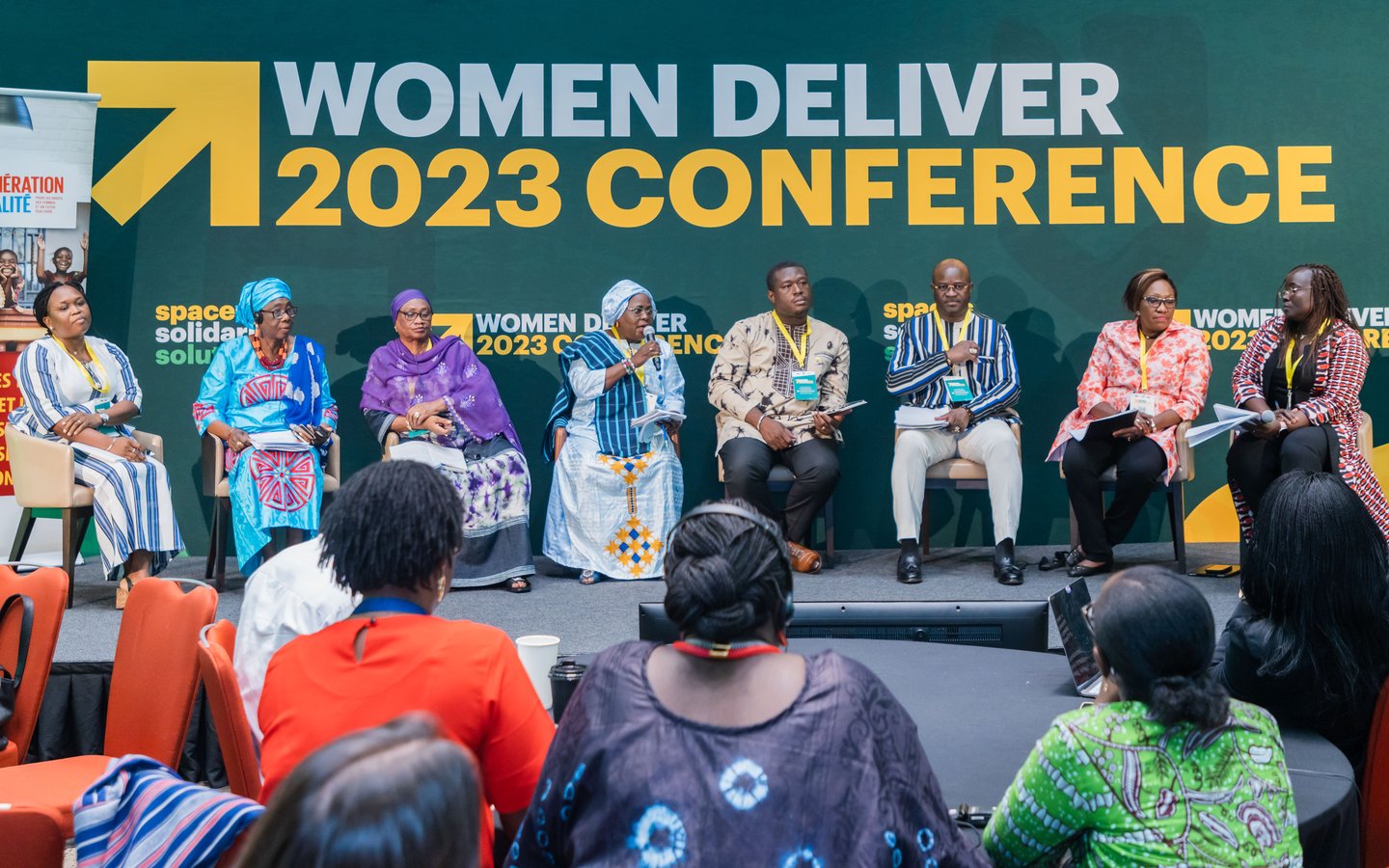Women Deliver side event highlights the impact of investing in neglected tropical diseases to advance gender equity
Amidst the vibrant discussions and empowering atmosphere of the 2023 Women Deliver Conference in Kigali, a side event shone a light on progress being made in Burkina Faso and other West African nations on generation equality.
As one of the world’s largest convenings to advance gender equality, this year’s Women Deliver Conference, held in Kigali, Rwanda, was an important opportunity to ensure that organisations working on gender equality and sexual and reproductive health rights see the benefit of integrating neglected tropical diseases in their interventions. NTDs, especially schistosomiasis and soil-transmitted helminths (STHs), disproportionately affect women, impacting their health and well-being. These diseases can lead to severe health implications during pregnancy, including increased maternal mortality, infertility, and heightened vulnerability to HIV.
Moreover, approximately one in three pregnant women in sub-Saharan Africa is infected with hookworm (a type of STH), responsible for 54% of pregnancy-related anemia cases. Anemia is a leading risk factor for maternal deaths in Africa, accounting for 20% of such deaths. Schistosomiasis can cause female genital schistosomiasis (FGS), tripling HIV risk and causing infertility and maternal death, often misdiagnosed as an STI. Presently, 56 million women and girls suffer from FGS in sub-Saharan Africa.
As this year's conference theme revolved around fostering solidarity for sustainable solutions on gender equality, the side event highlighted the importance of integrating NTD prevention, diagnosis and treatment within routine sexual and reproductive health screening.
The side event, “Achieving Gender Equality in Burkina Faso: Spotlight on Challenging Issues” was convened by the Ministry of Health of Burkina Faso, Kimi Foundation, UNFPA, and Uniting to Combat NTDs, and speakers included renowned leaders, medical professionals, champions and activists:
- Mme Secretary General of the Ministry of Health of Burkina Faso, Dr Estelle Edith Dabire Dembele;
- H.E. Dr Isatou Touray, Former Vice President of Republic of The Gambia;
- Professor Charlemagne Ouedraogo, Former Minister of Health of Burkina Faso and gynecologist;
- Mme Mariam Lamizana, former Women’s Promotion Minister, champion against FGM and President of CI-AF;
- Dr Euphrasie Adjami, gynaecologist, focal point of Generation Equality;
- Mme Mariam Nonguierma, midwife, President of SRHR/NGO Coalition;
- Dr Narcisse Salembere, Executive Director of the KIMI Foundation and
- Cecile Thiombiano, Advocacy Coordinator on SRHR for Africa Medecins du Monde-F.
The event showcased how Burkina Faso's efforts to tackle NTDs have contributed to significant improvements in gender equity and women's health.

Burkina Faso's journey in battling NTDs has been nothing short of commendable. The country is endemic for eleven NTDs, including echinococcosis, foodborne trematodiases, sleeping sickness, cutaneous leishmaniasis, leprosy, lymphatic filariasis, river blindness, rabies, schistosomiasis, taeniasis and cysticercosis, and trachoma. In recent years, Burkina Faso has achieved significant reductions in the number of people at risk of contracting NTDs. In 2012, approximately 19.2 million individuals were vulnerable to NTDs, but by 2021, this figure decreased to 3.7 million people, marking an impressive 81% reduction in at-risk populations.
The country's commitment to disease elimination is also evident through the successful elimination of Guinea worm disease in 2011, demonstrating Burkina Faso's ability to overcome complex health challenges. Furthermore, Burkina Faso has effectively tackled soil-transmitted helminths (STH) by implementing more than five years of preventive chemotherapy. Through this sustained effort the country has decreased the STH prevalence rate to less than two per cent and has now stopped further preventive chemotherapy. Burkina Faso's dedication to NTD control is also reflected in its high scores on the NTD Coverage Index between 2016 and 2020. Scoring above 88, the country demonstrated significant progress in combating the five preventive chemotherapy diseases. Only a few other nations, including Togo, Rwanda, and Malawi, achieved similar high scores during this period.
Overall, Burkina Faso's efforts in fighting neglected tropical diseases have yielded remarkable results. The reduction in at-risk populations, successful disease elimination, and effective preventive chemotherapy programs exemplify the country's commitment to public health and its drive to improve the well-being of its citizens. Burkina Faso’s story also highlights how progress fighting neglected tropical diseases (NTDs) is a powerful step towards achieving gender equity. For diseases like schistosomiasis and soil-transmitted helminths (STH), deworming can restore regular menses and fertility, while early interventions can reverse female genital schistosomiasis (FGS), reducing the risk of HIV and other co-morbidities. These affordable and highly effective interventions create a ripple effect, improving education, health, and employment outcomes, transforming lives and communities. By successfully addressing NTDs, Burkina Faso has not only advanced gender equity but also demonstrated the power of collective action in improving women's well-being.
The story in the Gambia is equally commendable. The Gambia eliminated trachoma in 2021 and has reduced NTD prevalence by 60%. In 2012, 1.2 million people were at risk of getting an NTD in The Gambia, by 2021 this figure reduced to 500 thousand people. At the event, H.E. Dr Isatou Touray, Former Vice President of Republic of The Gambia, spoke of the benefits of investing in NTDs, and ended with a rallying call-to-action, asking for NTDs to be included in global funds and integrated into national health services.
So, what’s next? Uniting will be working with Burkina Faso, The Gambia, and countries across Africa to unlock sustainable financing for NTDs by showcasing what can be achieved when NTDs are prioritized, highlighting how progress is possible, and sharing how investment in NTDs creates a ripple effect in society, leading to better education, health, and employment outcomes, and helping to reduce gender inequity, stigma, and preventable mortality and morbidity.
We also have three asks for NTDs in relation to gender equity:
- We want to see NTD funding included in Global Fund applications, to address co-infections and co-morbidities to reduce the burden of AIDS, TB, and Malaria. Specifically, emphasize the need for schistosomiasis treatment to reduce the risks of female genital schistosomiasis.
- We want to see equity considered throughout all health interventions including NTD programming. Gender equity needs to be at the heart of all interventions to truly deliver the SDGs and leave no one behind.
- We want to see the integration of NTD prevention, diagnosis and treatment within routine sexual and reproductive health programmes.
To find out more, please click here.
Watch a snippet from Women Deliver here:
